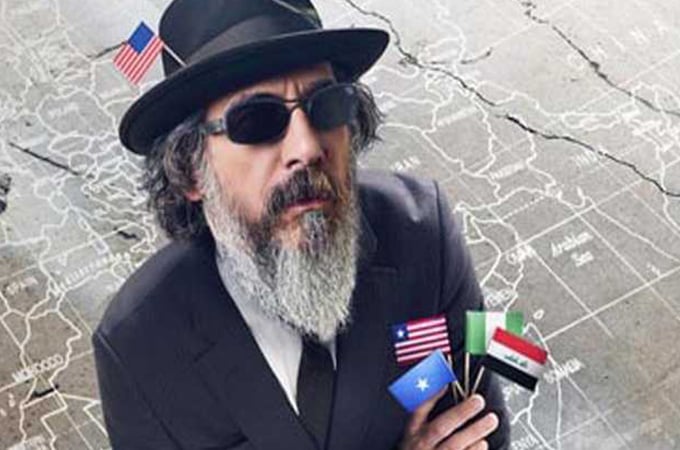On April 6, comedy writer and director Larry Charles joined the U of R Johnston Center for Integrative Studies for a virtual talk about getting uncomfortable in the service of intellectual work and art. Over the course of his career, Charles has directed, written for, and produced alongside some of the entertainment industry’s sharpest comedic minds, including Sacha Baron Cohen, Larry David, Arsenio Hall, and Jerry Seinfeld.
“If you’ve laughed at something on television or a screen over the past 40 years, the chances are good that Larry Charles was creatively involved,” said M. G. Maloney ‘03, assistant director of the Johnston Center, introducing Charles to an audience of students, faculty members, and alumni.
After beginning his career writing for Fridays, he won two Primetime Emmy awards for his work on Seinfeld—which included leading the character development for Kramer. More recently, Charles has directed and produced episodes of Curb Your Enthusiasm, directed ten feature-length films, and released Larry Charles’ Dangerous World of Comedy, a docuseries about comedy around the world, on Netflix in 2019.
It all began, he said, in what he refers to as the “golden comedy triangle"—the Brighton Beach neighborhood of Brooklyn, New York—where he grew up. “It was an epicenter of amazing Jewish humor at a time when America was craving it,” he said, noting that Mel Brooks, Woody Allen, and Larry David all came from the same region. The son of a failed comedian, Charles remarked that, for as long as he can remember, his life was consumed by comedy and he was conditioned for the trade: “No matter what I was going to turn to, it seemed like comedy would be involved,” he said.
Still, Charles attributes much of his success to sheer luck. After moving across the country to find work in Los Angeles, he would stand outside The Comedy Store, a now-famous comedy club that opened in 1972 on Sunset Boulevard, selling handwritten jokes to comedians who would take the stage later in the night. From there, he built relationships with performers who would later recommend him for his first television writing jobs.
“It was a golden time for comedy,” he said. “Throughout my career, I’ve had to push myself to be uncomfortable, but I went, quite literally, from being a bellhop to a TV writer—it was a tremendous amount of luck.”
That feeling of discomfort has become familiar to Charles, whose latest project took him abroad and into countries riddled with conflict. In these regions, such as Somalia, Liberia, and Iraq, comedy is often born out of tragedy. In addition to exploring how humor can grow out of public health crises and international conflict, Charles said he became acutely aware of the lives that other people were living.
“When you are trapped, there are very few avenues that are appropriate to diffuse situations, and humor is one of them,” he said. “That’s why people turn to comedy. The best comedy taps into the things that we’re afraid to think or say, and the same thing should be said of all art.”
Consequently, many comedians must toe a fine line throughout their careers, and Charles notes he is always prepared for criticism. The root of a good or bad joke is the angle from which it’s told—comedians are responsible for taking dark subjects and finding ways to talk about them that doesn’t take advantage of or exploit anyone.
After fielding questions from attendees about conceiving and creating provocative films, careers in the entertainment industry, and meeting Bob Dylan for the first time, Charles encouraged students to find their own processes in their creative lives.
In his closing remarks, Johnston Center Director Tim Seiber ’04 thanked Charles for his time and his move to redirect the honorarium fee given to visiting speakers back to the Johnston Center food pantry in order to support students.
“During your talk, you said that you wanted to do work as radical as your goals,” said Seiber. “I think that’s a value that can be shared by people in all kinds of efforts—comedy and others.”
Learn more about the Johnston Center for Integrative Studies.






